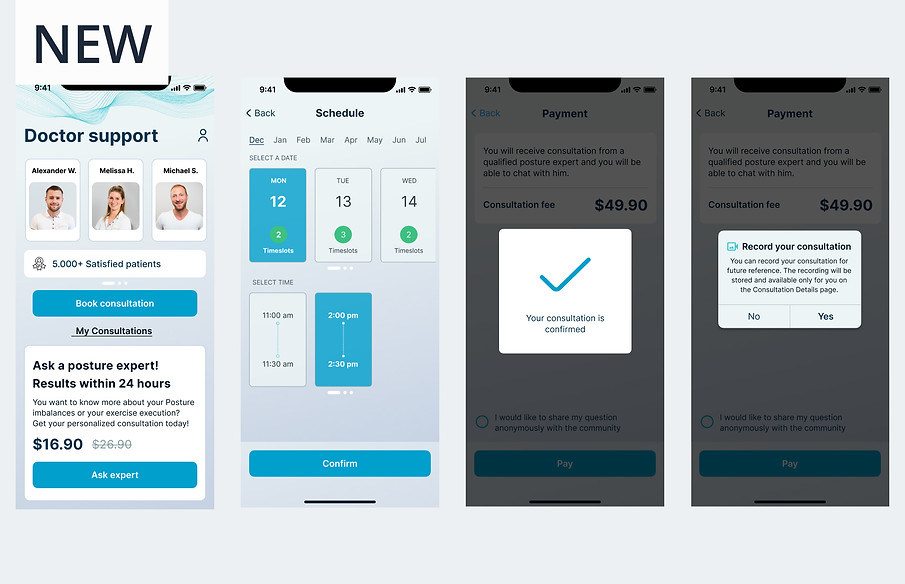
Posture assessment mobile app offering AI-Physiotherapy as a Service
Tools and Activities
Requirements: User Flow Analysis, Wireframing, Rapid Prototyping, High-fidelity Design, User Validation
Tools: Figma
Duration
Nov 2022- Apr 2023
My role
Head of Product
ABOUT THE PROJECT
When I joined I quickly realized the pressing need to enhance the user experience due to issues with workflow dead ends and an unintuitive AI scanning feature. My goal was to streamline the app's key processes, reimagine critical workflows, and introduce new features to enhance user engagement and value.
PROBLEM
Users were facing dead ends during the scanning process, which hindered the app's central value proposition of AI-driven posture assessment. Additionally, the AI scanning feature was not user-friendly, leading to frustration and reduced engagement.
SOLUTION
I enhanced the posture assessment app's user experience by eliminating workflow obstacles in critical user flows like scanning and report generation. I also introduced two new features, which brought additional value: seamless doctor appointment scheduling for personalized care and WhatsApp integration for convenient AI interaction and updates. The improvements streamlined the app flows and increase users retention.
Design
The revamped AI scanning workflow led to increased user engagement. Users no longer faced dead ends and were guided through the process, resulting in higher completion rates.


The streamlined report creation process, coupled with accurate AI scanning, resulted in more comprehensive and reliable posture assessment reports. Users could better understand their condition and the recommended physiotherapy exercises.

The introduction of doctor appointment scheduling and WhatsApp integration broadened the app's utility. Users appreciated the convenience of scheduling appointments and receiving updates through a familiar platform.


Results
By addressing workflow dead ends, enhancing the AI scanning feature, and introducing new user-centric features, the UX overhaul of the posture assessment mobile app successfully improved user engagement, satisfaction, and the overall value proposition. The iterative design process and collaboration with medical experts played pivotal roles in achieving these positive outcomes.

